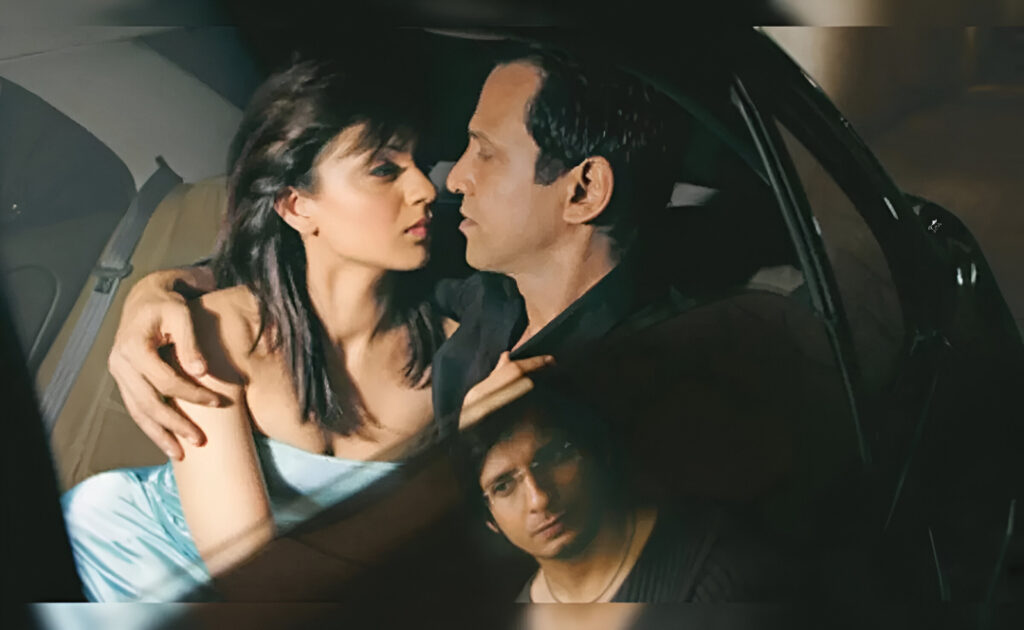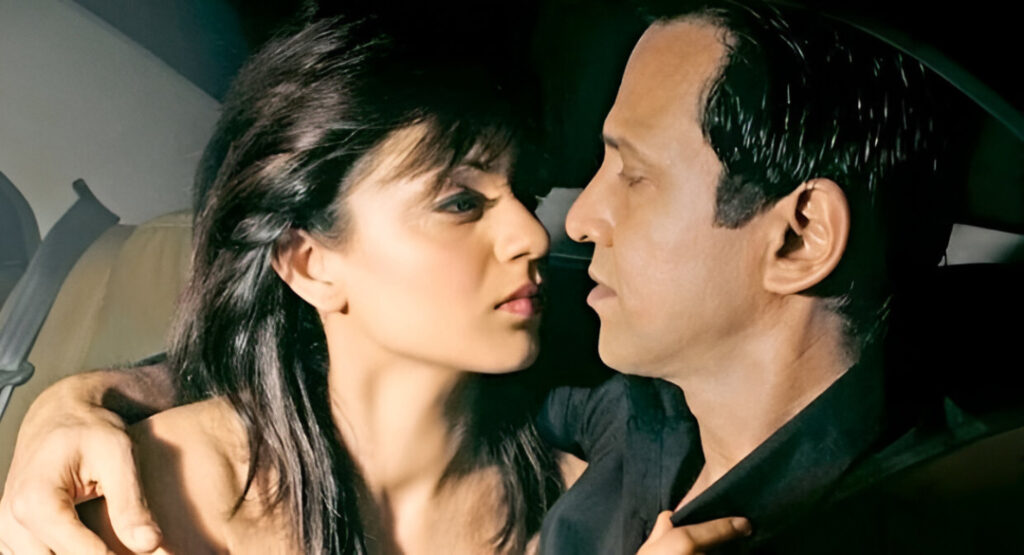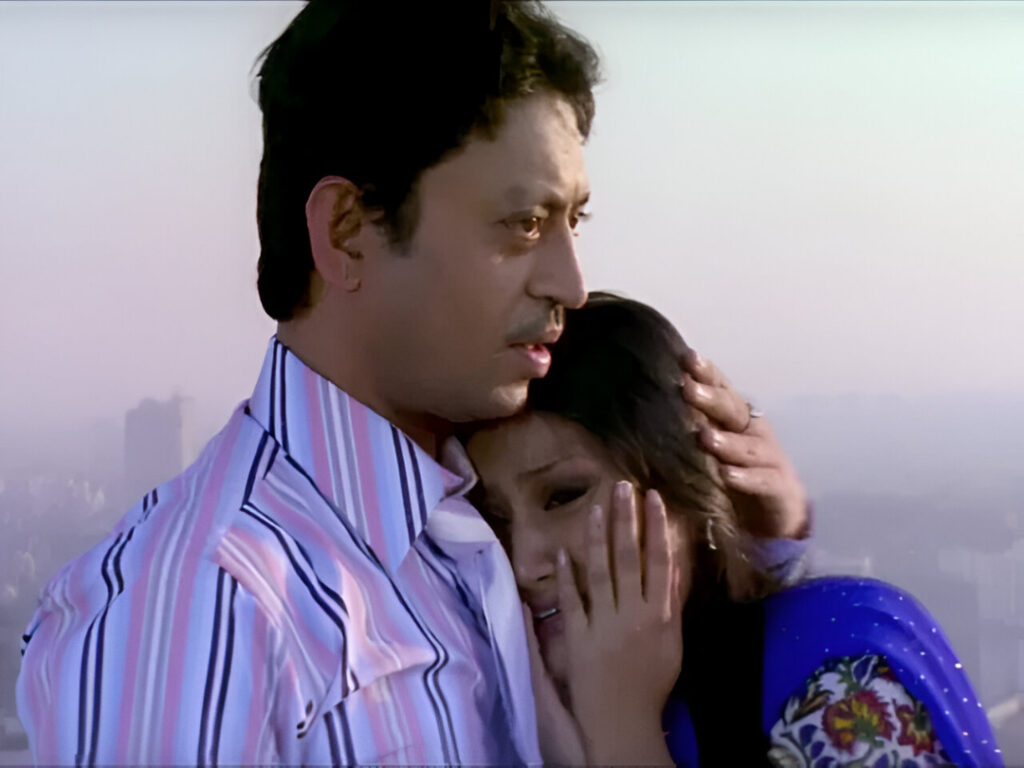
Rewatching Life in a… Metro in 2025 feels like texting your ex “wyd” at 2 AM. You know it’s messy, you know it might leave you a bit hollow, but still, there’s something human about returning to it.
Released in 2007 before red flags were labelled and therapy-speak became everyday language, Life In A… Metro stood out. It didn’t glamorize heartbreak or paint perfect arcs. It sat with urban loneliness, strained relationships, and quiet betrayals in a way Hindi cinema rarely did.
Now, with Anurag Basu’s spiritual sequel Metro… In Dino, releasing this week, Gen Z audiences are revisiting the original through a fresh lens. One that’s been shaped by emotional boundaries, green flags, and a deep unwillingness to romanticize wreckage.
So, how does it hold up? Well, like life, it’s complicated.
Still Beautiful: Real People, Real Pain

Set in Mumbai, Metro threads together the lives of nine characters trying to navigate love, loss, ambition, and loneliness. The city moves fast, but these people are emotionally stuck, quietly breaking beneath their daily routines.
The storytelling is tight, the editing is smooth, and the use of a literal in-film band by Pritam, though unusual, adds emotional depth. But the film’s real triumph is in its casting.
Konkona Sen Sharma and Irrfan Khan as Shruti and Monty are a pure delight. She’s guarded, he’s eccentric, and their chemistry is awkwardly authentic. It’s not a grand love story; it’s two people slowly letting each other in, and that’s what makes it work.
Dharmendra and Nafisa Ali, as aging lovers Amol and Shivani, offer something still rare in Indian cinema: older characters with agency, longing, and dignity. Their story is quiet but moving.
Even Kangana Ranaut, long before her tabloid headlines, gives one of her most restrained performances as Neha, a woman used by power and left to pick up her own pieces.
Where It Stumbles: Women Carry the Blame

Despite its emotional maturity, Metro slips when it comes to the treatment of its women. Shikha (Shilpa Shetty) and Neha bear the brunt of it.
Shikha is stuck in a cold, emotionally distant marriage to Ranjit (Kay Kay Menon), who is openly cheating on her with Neha. Yet when Shikha develops a gentle emotional connection with another man, she’s the one swallowed by guilt.
In the film’s climax, Shikha chooses to return to her husband not because he’s changed, but because he says, “Bacchi toh meri hai na?” That’s it. No apology. No redemption. Just entitlement dressed as emotional logic.
Neha, on the other hand, is manipulated by Ranjit, who tells her she’s lucky to be used in exchange for perks like business-class flights. The emotional toll on her is enormous, but the film offers her no justice, just silence, shame, and heartbreak.
From a 2025 lens, these outcomes feel not just outdated but deeply frustrating. The message? That women’s greatest strength is their ability to forgive, endure, and return. Not walk away. Not healed. Just stay.
Shame, Desire, and the Uneven Playing Field

The film also highlights a stark double standard around desire. Men like Ranjit and Akash move through moral failings with ease. Women like Shikha and Neha are consumed by shame, even when they ask for less, do less, and hurt no one.
Shikha is guilt-ridden over a kiss. Neha is slut-shamed and discarded. Shruti is ridiculed for being a virgin. Meanwhile, the men show no remorse, and the narrative lets them off the hook.
For Gen Z, a generation actively unlearning generational shame, this is exhausting. We’ve grown up hearing that boundaries are healthy, that forgiveness must be earned, and that emotional accountability matters.
The Last Word: A Time Capsule and a Warning

All its shortcomings notwithstanding, Life In A… Metro still strikes a chord. Love, solitude, and repression of feelings—it’s all untidy, unresolved, and quintessentially human.
It’s old-fashioned, sure. And it could use some serious re-examining of its gender roles. But there’s a brutally honest truth in its narrative. Life isn’t always tidied up. Sometimes people remain in unhappy relationships. Sometimes they forgive too readily. And sometimes, there’s no tidy conclusion.
For Generation Z, the movie is both a reflection and a warning. A look at what older generations endured quietly. And a guide for what we should never settle for.
So will we be watching Metro… In Dino this week? Of course. But we’ll be hoping for better: women with agency. Men with self-awareness. And endings that reward healing over endurance.
Because love shouldn’t have to feel like survival.

